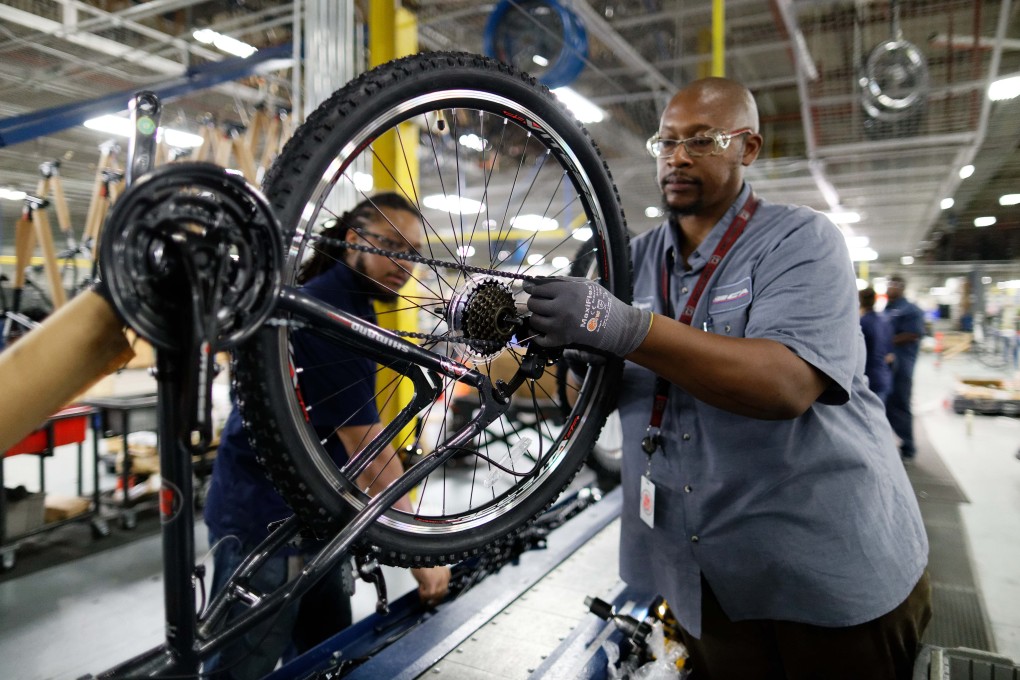Donald Trump’s trade war tariffs on China failing to bring jobs and manufacturing back to the US
- The US president promised tariffs on Chinese goods as part of the trade war would help bring jobs back to the United States
- But while firms are leaving China, it is the likes of Vietnam, Indonesia, Cambodia, Mexico, and Bangladesh that are benefiting the most

This story is part of an ongoing series on US-China relations produced jointly by the South China Morning Post and POLITICO, with reporting from Asia and the United States.
When Nikki Haley, then-governor of South Carolina, went to an opening ceremony for Kent International in 2014, the bicycle company had grand plans for expansion at its assembly plant to enable it to make its products in the United States.
This was two years before US President Donald Trump promised that his steep tariffs on Chinese goods would help bring jobs back to the US as firms downsize or in some cases close their manufacturing bases in China.
But five years after Haley’s visit, it is the very tariffs that Trump has imposed that have kept that plant in Manning, South Carolina, from expanding.
Firms are indeed moving out of China, but are not flocking to the US, undermining the central promise of Trump’s trade war. Cheaper labour markets in Southeast Asia are the ones benefiting the most amid the trade war that has ratcheted up duties on Chinese goods.
In fact, Trump’s actions have prompted Kent International to still rely on its Chinese joint venture partner, Shanghai General Sports, to supply more of its bicycles. For its part, Shanghai General is planning to build a factory on a plot of land in Cambodia, and by the end of year, 40,000 sq ft of production capacity will be complete.